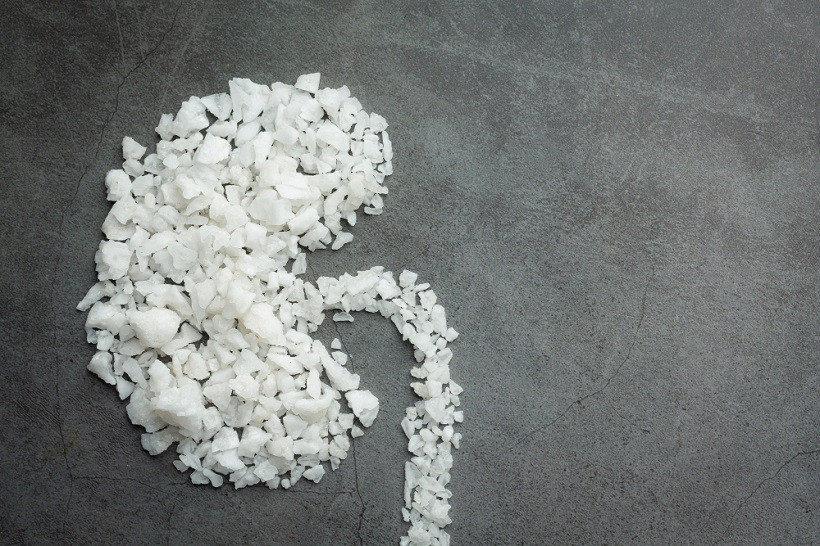In 2022, the World Health Organization (WHO) reported that 66 children in Gambia tragically lost their lives after ingesting cough syrup containing acetaminophen. Acetaminophen is widely used as a pain and fever reliever for both children and adults. But does this mean that taking acetaminophen could potentially lead to kidney damage in children? Let’s explore the details.
Acetaminophen Poisoning and the Risk of Kidney Failure in Children
A study by the Gambian government into child fatalities linked to cough syrup revealed that several syrup samples were tested and found to contain contaminants.
These syrups were contaminated with diethylene glycol and ethylene glycol, two toxic chemicals that exceeded safe levels. These substances, when present in large quantities, can cause acute kidney damage, potentially leading to fatal outcomes.
While acetaminophen itself is generally considered safe, it may cause harm if it is mixed with dangerous substances or taken improperly. Additionally, acetaminophen must be dosed correctly, as taking it in excessive amounts can lead to poisoning, which may cause kidney damage.
Research has indicated that consistent acetaminophen use—especially when taken more than twice a week over a span of two months—can increase the likelihood of developing chronic kidney failure. The risk increases 2.5 times compared to individuals who don’t use it regularly.
Safe Dosage of Acetaminophen for Children and Adults
To ensure safety, acetaminophen should always be administered in accordance with a doctor’s or pharmacist’s recommendations. Avoid taking more than the advised dose. Typically, acetaminophen can be taken 3 to 4 times a day, ensuring a 4 to 6-hour gap between doses. Never exceed four doses within 24 hours or continue the medication for more than three days unless directed by a healthcare professional.
The recommended safe doses of acetaminophen for children, based on the type of preparation, are as follows:
-
Oral Suspension (120 mg/5 ml, 250 mg/5 ml):
- 2-3 months: 2.5 ml, up to 2 doses per day
- 3-6 months: 2.5 ml, up to 4 doses per day
- 6-24 months: 5 ml, up to 4 doses per day
- 2-4 years: 7.5 ml (5 ml + 2.5 ml), up to 4 doses per day
- 4-6 years: 10 ml (5 ml + 5 ml), up to 4 doses per day
-
500 mg Acetaminophen Tablets and Capsules:
- Ages 10-15 years: 1 tablet, up to 4 doses per day
- Adults and children aged 16 years and over: 1-2 tablets, up to 4 doses per day
Signs of Acetaminophen Poisoning
Taking too much acetaminophen can lead to liver damage. The liver processes medications and helps remove toxins from the body. However, excessive intake of acetaminophen can overwhelm the liver, resulting in toxicity and severe damage.
Acetaminophen poisoning can occur if a child exceeds the recommended dose, takes multiple doses too close together, or consumes an excessive amount in a short period of time.
Signs of acetaminophen poisoning include:
- Constant nausea and vomiting
- Pain in the upper right side of the abdomen (under the ribs)
- Loss of appetite
- Unexplained fatigue
- Dark or bloody urine
- Decreased urine output or infrequent urination
- Yellowing of the skin or eyes (jaundice)
- Breathing difficulties
- Blurred vision
Symptoms of acetaminophen poisoning don’t always appear immediately. If you notice any of these signs after your child has taken acetaminophen outside the prescribed guidelines, seek emergency medical help right away. If you have concerns about medications, don’t hesitate to consult a doctor or use the consultation feature on the Ai Care app, available for download from the App Store or Play Store.
Want to learn more about other health issues? Click here!
- dr Nadia Opmalina
Health Direct. Paracetamol. Available from: https://www.healthdirect.gov.au/paracetamol
Drugs. (2023). Paracetamol. Available from: https://www.drugs.com/paracetamol.html
Waddington, F., Naunton, M., & Thomas, J. (2014). Paracetamol and analgesic nephropathy: Are you kidneying me?. International medical case reports journal, 8, 1–5. https://doi.org/10.2147/IMCRJ.S71471
Khan, Z., Abumedian, M., Ibekwe, M., Musa, K., & Mlawa, G. (2021). Acute Renal Impairment in Patients Due to Paracetamol Overdose in the Absence of Hepatic Impairment. Cureus, 13(12), e20727. https://doi.org/10.7759/cureus.20727
Saied, A. A., Metwally, A. A., & Dhama, K. (2023). Gambian children's deaths due to contaminated cough syrups are a mutual responsibility. International journal of surgery (London, England), 109(2), 115–116. https://doi.org/10.1097/JS9.0000000000000112
Saad, M., Flament, J. Paracetamol overdose causing acute kidney injury without hepatotoxicity: a case report. Int J Emerg Med 17, 81 (2024). https://doi.org/10.1186/s12245-024-00662-w












